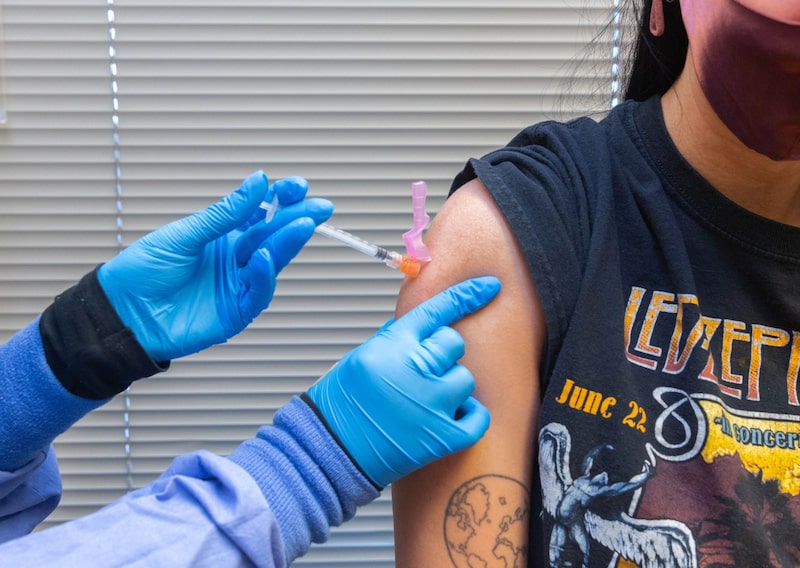Bloomberg — Younger, less-educated, Hispanic and Black people were most likely to have been infected with Covid-19 without having been vaccinated, according to a government study that highlights continuing disparities in immunization rates.
A survey of blood samples singled out the groups as more likely to have antibodies that indicated recent infection, according to researchers from the US Centers for Disease Control and Prevention, while the respondents themselves reported lower rates of Covid vaccination.
The Biden administration has worked to broaden vaccine access as widely as possible in hopes of bringing the three-year pandemic under control. The results suggest that health officials still have a ways to go in their efforts to achieve vaccine equity and extend protection through a variety of ethnic and age groups.
“These findings raise health equity concerns given the disparities observed in SARS-CoV-2 infection and COVID-19 vaccination,” the researchers wrote in CDC’s Morbidity and Mortality Weekly Report.
The results are consistent with earlier data indicating lower vaccination coverage among minority groups, the researchers said. They also mirror earlier data showing that Pfizer Inc.’s Paxlovid antiviral was prescribed to Black and Hispanic Covid patients at much lower rates than White patients.
The study analyzed more than 1,500 blood samples collected from Aug. 2021 to May 2022 through the National Health and Nutrition Examination Survey, along with self-reported vaccination information.
The study’s results were preliminary, without adjustments for non-responsiveness and unequal sampling of age groups, the researchers said.
Read more on Bloomberg.com


